Curriculum Progression Pathways
The Shrubberies Pathway Curriculum is;
A curriculum that is ambitious and designed to give all learners the knowledge and cultural capital they need to succeed in life. It builds and strengthens self-agency as a result of a sense of self and awareness of their place in the world. It provides the knowledge and skills for future learning, life experiences, independence and employment. It is a holistic curriculum that is coherently planned, sequenced and allows for personalisation. It is designed to meet the needs of all of our children, no matter what their level of SEND.
We believe that a hierarchical, small-steps curriculum does not meet the idiosyncratic nature of our children’s learning or meet the aspiration for their future. The curriculum should not be driven by small tick list steps where children are taught as a homogenous group. We are passionate to develop a curriculum that is holistic and recognises the individual needs, aspirations, interests and destinations of our students. Due to the nature of our students, the curriculum is not chronologically structured. It allows students to work at the developmental stage appropriate to their needs. We acknowledge the development of a curriculum designed by Swiss Cottage School Development and Research Centre and the work of Penny Lacey (2011). We have taken their influences, and have, collaboratively, worked on a curriculum that is flexible and that allows students to have a personalised curriculum that is aspirational for their future.
This Pathway Curriculum has been designed to meet the needs of our commissioned cohort of students who have Severe or Profound and Multiple Learning Difficulties.
Curriculum Overview
The Shrubberies School curriculum is designed to be flexible, inclusive, and responsive to the individual needs of our pupils. It is built around three interconnected strands: informal, semi-formal, and formal. These strands allow us to personalise learning pathways and ensure that every child is supported and challenged appropriately, wherever they are in their learning journey.
We recognise that some of our pupils have a spiky profile – showing strengths in certain areas alongside difficulties in others. Our curriculum is carefully structured to reflect this, enabling pupils to access different strands as needed. This approach ensures that learning remains meaningful, relevant, and aspirational for all, promoting progress in communication, independence, social development, and academic skills.
Intent Statement: Informal Curriculum
Our informal curriculum is designed to complement the formal academic learning by focusing on the holistic development of every pupil. We understand that our learners have diverse needs and strengths, and our informal curriculum provides a flexible, inclusive, and nurturing environment where they can grow socially, emotionally, and practically.
Our intent is to:
- Promote independence, confidence, and a strong sense of self-worth
- Provide meaningful opportunities for social interaction, communication, and teamwork
- Develop life skills that prepare pupils for adulthood, including self-care, community participation, and decision-making
- Foster creativity, curiosity, and enjoyment through enrichment activities such as arts, sports, outdoor learning, and cultural experiences
- Ensure pupils experience a sense of belonging, fun, and achievement beyond the classroom.
Through a responsive and pupil-centred approach, we aim to give all learners the chance to thrive in ways that matter most to them and their families.
Intent Statement: Semi-Formal Curriculum
The semi-formal curriculum at our school is designed for our pupils who are not yet ready to access a fully formal (subject-based) curriculum, but who have moved beyond the earliest stages of development typically supported by an informal approach. Our semi-formal pathway blends subject-based learning with holistic development. These pupils benefit from a more structured, skills-based curriculum that remains highly personalised, practical, and meaningful.
Our intent is to:
- build confidence in early reading, writing, number, and communication through carefully scaffolded, practical activities that embed learning in everyday contexts
- support expressive and receptive communication through spoken language, signs, symbols, and AAC
- allow pupils daily opportunities to make choices, express preferences, and engage in meaningful social interaction
- teach essential self-help, daily living, and community participation skills to prepare pupils for increasing independence both in and out of school
- provide consistent routines, emotional literacy development, and sensory regulation strategies to help pupils understand and manage their emotions
- Offer motivating, hands-on learning through thematic or topic-based approaches that link to pupils’ experiences and interests, helping to build focus, attention, and resilience
- ensure that all learning supports long-term goals by developing communication, functional numeracy, social understanding, and independence in a way that prepares each pupil for the next stage of their life, whether that’s within further education, supported living, or community-based activities.
Intent Statement: Formal Pathway
The formal pathway is designed to provide students with the opportunity to access a structured academic curriculum adapted to their individual needs. Our primary aim is to develop core academic skills alongside social, emotional, and independent living skills, preparing students for progression to further education, training, or employment.
We are committed to delivering a broad and balanced curriculum that emphasises literacy, numeracy, and functional skills, alongside personalised learning goals. The pathway focuses on building confidence, resilience, and critical thinking through differentiated teaching methods and ongoing assessment.
By fostering a supportive and inclusive environment, and working collaboratively with families and external professionals, we strive to maximise each student’s potential and facilitate successful transitions beyond school into adult life.
Our intent is to:
- offer personalised learning through delivering instruction that is adapted to each pupils’ cognitive, emotional, and physical capabilities
- focus on foundational academic skills alongside communication, social interaction, and independence
- incorporate therapies seamlessly within the educational provision (speech, occupational, behavioural)
- prepare pupils for post-school life, including further education, vocational opportunities, or community participation
- promote emotional wellbeing, confidence and self-advocacy.
Our curriculum reflects The Shrubberies School’s commitment to developing the full potential of each pupil in a respectful, inspiring and supportive environment, one where individuality is celebrated, talents are nurtured, and every learner is empowered to grow in confidence, independence, and readiness for life beyond school.
